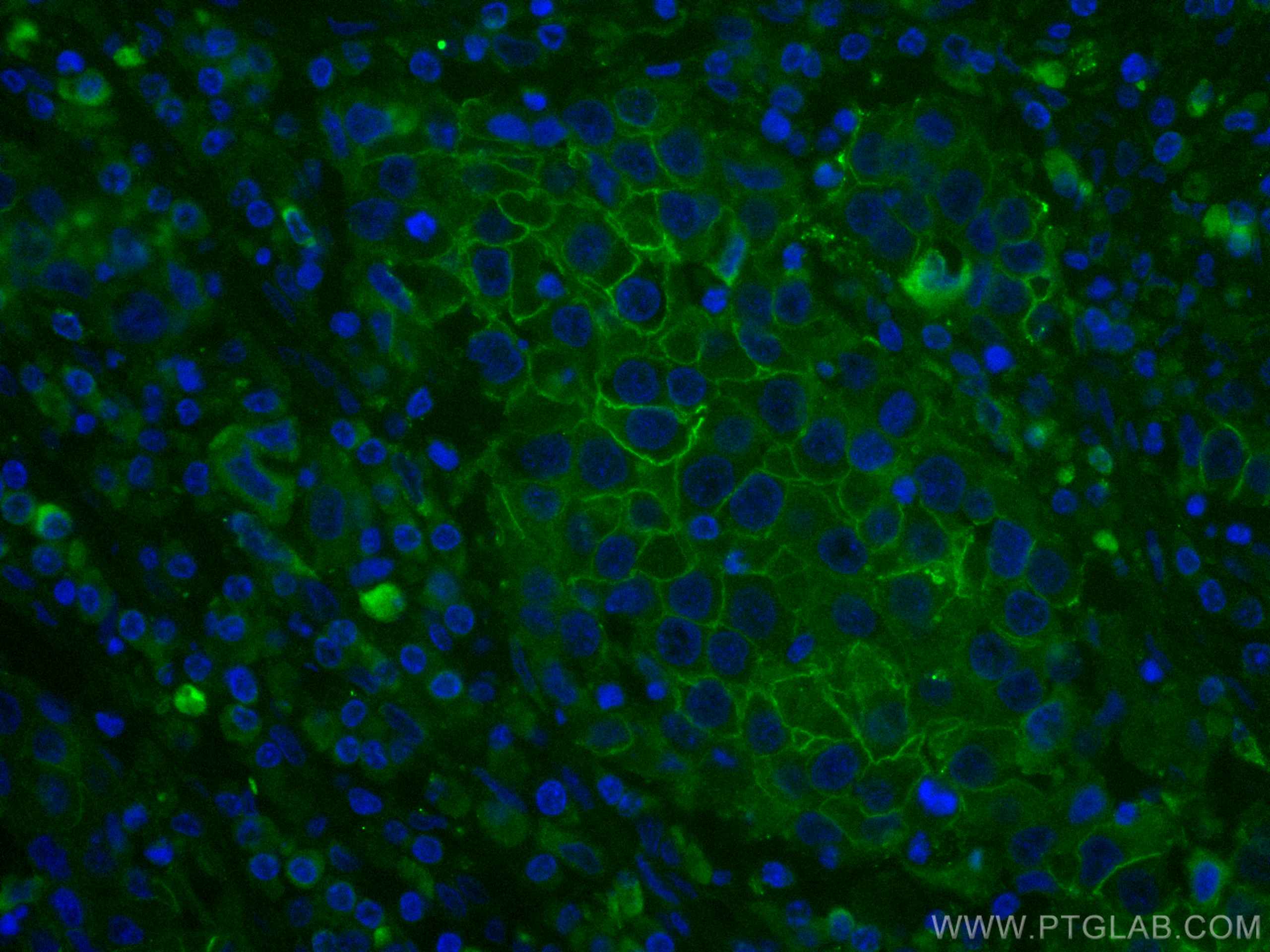ALCAM Monoklonaler Antikörper
ALCAM Monoklonal Antikörper für IF
Wirt / Isotyp
Maus / IgG1
Getestete Reaktivität
human
Anwendung
IF
Konjugation
CoraLite® Plus 488 Fluorescent Dye
CloneNo.
1F7D6
Kat-Nr. : CL488-67768
Synonyme
Galerie der Validierungsdaten
Geprüfte Anwendungen
| Erfolgreiche Detektion in IF | humanes Mammakarzinomgewebe |
Empfohlene Verdünnung
| Anwendung | Verdünnung |
|---|---|
| Immunfluoreszenz (IF) | IF : 1:50-1:500 |
| It is recommended that this reagent should be titrated in each testing system to obtain optimal results. | |
| Sample-dependent, check data in validation data gallery | |
Produktinformation
CL488-67768 bindet in IF ALCAM und zeigt Reaktivität mit human
| Getestete Reaktivität | human |
| Wirt / Isotyp | Maus / IgG1 |
| Klonalität | Monoklonal |
| Typ | Antikörper |
| Immunogen | ALCAM fusion protein Ag16892 |
| Vollständiger Name | activated leukocyte cell adhesion molecule |
| Berechnetes Molekulargewicht | 583 aa, 65 kDa |
| Beobachtetes Molekulargewicht | 90-100 kDa |
| GenBank-Zugangsnummer | BC137097 |
| Gene symbol | ALCAM |
| Gene ID (NCBI) | 214 |
| Konjugation | CoraLite® Plus 488 Fluorescent Dye |
| Excitation/Emission maxima wavelengths | 493 nm / 522 nm |
| Form | Liquid |
| Reinigungsmethode | Protein-G-Reinigung |
| Lagerungspuffer | BS mit 50% Glyzerin, 0,05% Proclin300, 0,5% BSA, pH 7,3. |
| Lagerungsbedingungen | Bei -20°C lagern. Vor Licht schützen. Aliquotieren ist bei -20oC Lagerung nicht notwendig. 20ul Größen enthalten 0,1% BSA. |
Hintergrundinformationen
Activated leukocyte cell adhesion molecule (ALCAM, also known as CD166) is a cell adhesion molecule that belongs to the immunoglobulin superfamily. It is involved in cell-cell adhesion through homophilic and heterophilic (to CD6) interactions. ALCAM is widely expressed in a variety of normal tissues. Altered ALCAM expression has been associated with the differentiation state and progression in some neoplasms including melanoma, prostate, colorectal, and breast cancers (PMID: 20461761; 18172759).
Protokolle
| Produktspezifische Protokolle | |
|---|---|
| IF protocol for CL Plus 488 ALCAM antibody CL488-67768 | Protokoll herunterladen |
| Standard-Protokolle | |
|---|---|
| Klicken Sie hier, um unsere Standardprotokolle anzuzeigen |


